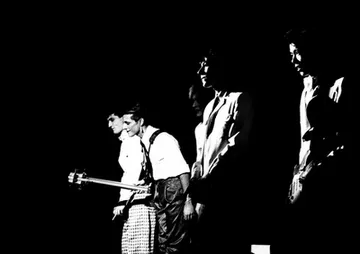
Japanese Culture Day in the United States: A Celebration of Heritage
Japanese Culture Day, known as "Nihon no Bunka no Hi" in Japanese, is a significant occasion in the United States that celebrates the rich traditions and heritage of Japan. This event showcases the fascinating and diverse aspects of Japanese culture, including its art, cuisine, festivals, and customs. Celebrated annually, it serves as a bridge between the two nations and promotes understanding and appreciation of Japanese heritage among Americans.
The Origins of Japanese Culture Day
The concept of Japanese Culture Day was introduced in the early 20th century as part of broader cultural exchange programs. It was inspired by Japan's efforts to cultivate relationships with other countries, especially in North America. This day offers an opportunity to engage in cultural dialogue, enhancing mutual respect and collaboration.
When is Japanese Culture Day Celebrated?
In the United States, Japanese Culture Day typically falls on November 3rd, aligning with the Japanese national holiday known as Culture Day (Bunka no Hi). This date was chosen to commemorate the importance of culture in national identity and to honor the contributions made by Japanese culture to global society.
Activities and Events
Japanese Culture Day features a diverse array of events and activities across the country. Here are some common celebrations:
- Cultural Exhibitions: Museums and cultural institutions often host exhibitions showcasing traditional and contemporary Japanese art, photography, and artifacts. These exhibitions provide a glimpse into the artistry and craftsmanship that characterizes Japanese culture.
- Workshops and Demonstrations: Many communities offer workshops on traditional Japanese arts, such as calligraphy, origami, and ikebana (flower arranging). These hands-on activities allow participants to learn and appreciate the intricacies of Japanese craftsmanship.
- Performances: Local theaters and cultural centers feature performances of traditional Japanese music, dance, and drama. This includes everything from Taiko drumming to Noh theater, enriching attendees' understanding of Japan's performing arts.
- Culinary Events: Food festivals celebrate the diverse culinary heritage of Japan. Attendees can sample sushi, ramen, and other traditional dishes, often accompanied by demonstrations on preparing authentic Japanese cuisine.
- Tea Ceremonies: The Japanese tea ceremony, known as "Chanoyu," is often demonstrated during Japanese Culture Day events. This ritual emphasizes the artistry of tea preparation and the meditative experience surrounding it.
The Importance of Japanese Culture Day
Japanese Culture Day plays a vital role in fostering intercultural understanding and appreciation. It allows Americans to learn about the nuances of Japanese customs and traditions. By participating in these celebrations, individuals can break down cultural barriers and promote inclusivity.
Conclusion
Japanese Culture Day in the United States is more than just a celebration; it is an opportunity to build bridges between cultures and honor the contributions of Japan to global society. By engaging in various activities and events, participants can deepen their understanding of Japanese culture while celebrating its beauty and complexity. Whether through art, food, or performance, this day serves as a reminder of the rich tapestry of global cultures.





![Argentina: Día Nacional del Artista Plástico.[3]En homenaje a Prilidiano Pueyrredón, pintor, arquitecto y precursor de la pintura en Argentina, quien falleció este día de 1870](https://res.cloudinary.com/dmokrcytj//es/holidays/argentina_da_nacional_del_artista_plstico3en_homenaje_a_prilidiano_pueyrredn_pintor_arquitecto_y_precursor_de_la_pintura_en_argentina_quien_falleci_este_da_de_1870.webp)